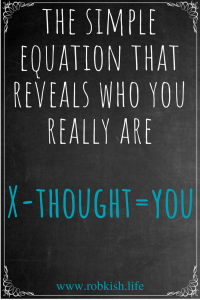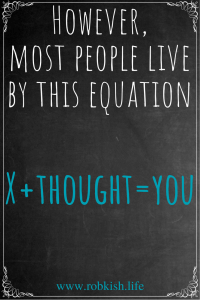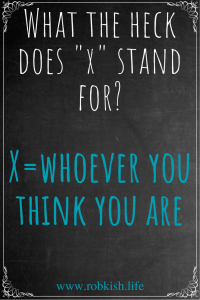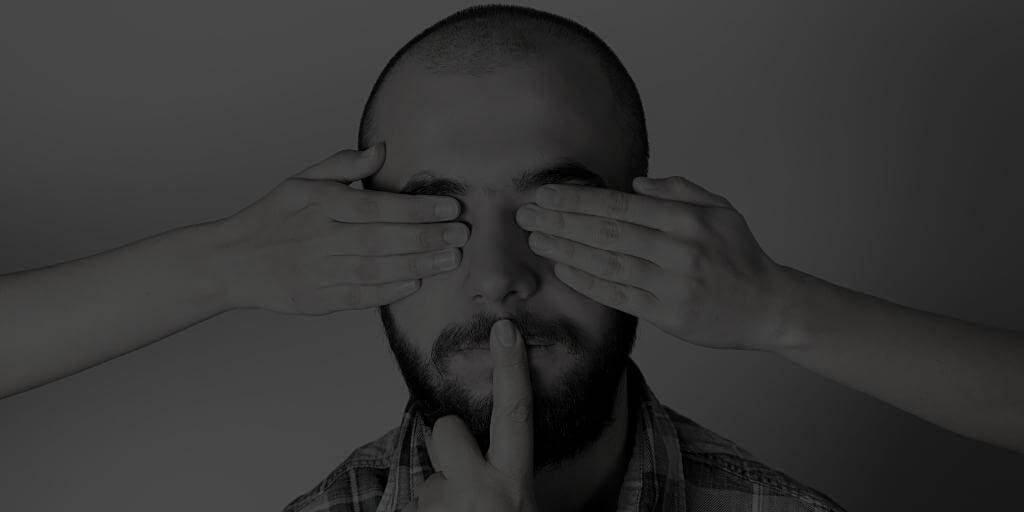One minute we’re deserving, the next minute we’re not, yet neither can be true because the infinite truth never changes, it’s our thoughts that are ever changing.
A recent trend of conversations has compelled me to write on the topic of “deserving”.
This word seems to get thrown around quite a bit when people attempt to:
Justify an otherwise knowingly poor decision.
I deserved that ice cream.
I deserved to spend that money I didn’t have.
To maintain their low self-worth by judging the greater worth of others.
They deserve better than me.
I deserve to be treated like shit.
To maintain a self-righteous, inflated ego and elevated self-worth by judging the lesser worth of others.
I deserve better than this/you.
You don’t deserve that.
I recently wrote about “YOLO” (You Only Live Once), a close cousin to “deserving”, and its’ similar repercussions. If you tend to use YOLO often you may want to read that after.
I Deserve Better – Where It All Begins
Surely, babies and toddlers don’t think they’re deserving or undeserving of anything in this world. If they did, we would hear some pretty remarkable comments:
I deserve real milk, not this fake milk.
I deserve to wear brand-name clothing, not this stuff from Walmart.
I deserve more toys.
I deserve to watch more T.V
I deserve a better stroller
I deserve better diapers
This is not an inherent genetic trait that gets passed down from generation to generation. We are not born with the conundrum of whether we are deserving or not.
It isn’t until you have learned from somewhere (parents, kids at school, teachers, sports) that you are either deserving or undeserving. This is done through a social conditioning that most of us fail to see, ever.
How Expectations In Sports Can Teach This
I used to think I deserved certain things in life. Having grown up playing competitive hockey, strengthened my conditioning that to deserve a reward you must first meet certain criteria or expectations. If these criteria were not met you were not rewarded. This can be seen in the interpersonal relationships between coaches and players, parents and players, and the team and the scoreboard.
Many times, if a kid plays well according to others (parents and coaches), they are typically treated as they deserve to be there by the coaches, and their own parents. On the flip side, if a kid does not play well, many times they are treated like they don’t deserve to be there by the coaches and their own parents alike.
For example, the team may have won an important championship game yet the kid who didn’t play well can easily feel ostracized and undeserving to participate in the celebrations due to not being treated the same way as they would by their coaches and/or parents if they had played well.
What it boils down to is this, if they play well, they feel deserving enough to be part of the team and when they don’t play well they don’t feel deserving enough to be part of the team. I’m sure anyone who has played sports can relate to this.
How Expectations In Parenting Can Teach This
The expectation and reward system is also a common ploy parents use to get their children to meet their personal expectations of them.
If you do your homework I will let you watch T.V.
If you get straight A’s on your report card I will buy you a gift of your choosing.
If you eat all the food on your plate I will let you have dessert.
If you clean your room I will let you go out with your friends.
In other words, if you meet my expectation I will reward you because you “deserve” it…if…if…if
What this also teaches kids is that they are undeserving when they don’t meet certain expectations.
Not to say that this system is right or wrong, I am merely pointing out its’ faults and the repercussions that can follow. Often these repercussions are carried forward to most people’s graves as they had no clue this reward system existed in the many ways that didn’t serve them.
Does Your Deservingness Serve You?
There are definitely healthy ways to use this reward/expectation system to your advantage, unfortunately, many people don’t appear to know that. What I mean by to your advantage is using the system in a way that serves you, whether that be serving your physical, mental, or spiritual health.
This is how many use their deservingness to not serve themselves:
Sitting on the couch with a bucket of ice cream in their lap because they think they “deserve” it after the day you have had, clearly doesn’t serve their physical health.
Going on a shopping spree and slapping the whole bill on their credit card because they “deserve” what they bought, clearly does not serve their mental or spiritual health.
You realize you have done a disservice to your mental and spiritual health when you realize you spent money you don’t currently have and the material things you bought don’t make you feel any more worthy. It was just a good idea at the time that was built on a faulty premise.
One question to always ask yourself before you go off the deep end is this: “Is what I am about to do going to serve my physical, mental, and spiritual health?”.
Do You Or I Deserve Better? Nope
This is the contrast that gets vastly overlooked. I mean really, it took me 32 years to see it so don’t feel bad if you didn’t.
The contrast is this:
In order to be deserving, we must first judge our previous self, or others, as undeserving in comparison.
To be deserving of something means that prior to whatever expectations were or were not met, you are not deserving of what comes next. This teaches us to live our lives undeserving of many things, that is until we meet the expectation that claims we are now deserving.
Our default now becomes “undeserving”. This is what leads many people, possibly even you, to indulge in things that really do not serve you and yet you continue to do so despite that knowledge.
You Deserve To Be Happy And Sad
Life is designed to be lived in polarities. None of us deserve one over the other as we were given the innate ability to feel happy or sad at any given time.
This is part of the divine design that we call life, and since we were not creative enough to design it, we surely are not going to be creative enough to manipulate it.
And that treat you’re eating surely isn’t creative enough either.
You Can’t Deserve What You Already Are
You are happiness
You are sadness
You are worth it
You are love
It’s not up to you, you are them all whether you think you deserve it or not.
The sun is in the sky whether we deserve it or not, whether we can see it or not.
Neither Deserving Nor Undeserving
Now, this is where things get interesting.
I propose a question to you: What if you are neither deserving or undeserving?
Where does that leave you?
You cannot have one without the other. To think you’re deserving means that you’re contrasting your previous self, or others, as undeserving and vice versa. This constitutes a MASSIVE judgment on your part, and a judgment that I would argue does not serve you.
Who Are We To Judge Anyways?
We think we earned the promotion that was given to another colleague of ours who we think doesn’t deserve the promotion.
Just because we think this, does not make it the universal truth, it only makes it true for us.
It’s only true for us because we believe our thoughts about this person being less deserving than us. Because we deem them as less than deserving, we will now treat them like they’re beneath us, like they don’t deserve it.
What if neither of us was deserving or undeserving? It is likely that if we saw both of us as equals, without judgment, we would have the capacity to actually be happy for them instead of criticizing them.
Another example.
We’ve all done it, and most still do. We put in a hard day’s work and decide we deserve a little treat. So we decide to hit our favourite fast food joint, bring out the ice cream or chips, maybe even have a couple more glasses of wine than normal.
All because we think we deserve it.
Why didn’t we deserve it before the end of a hard day’s work?
Why were we not worthy enough to treat ourselves?
Because we didn’t think we deserved it.
If we’d just stop judging ourselves so harshly we wouldn’t ever feel the need to treat ourselves with shit that doesn’t serve us. We would recognize our innate worth and treat ourselves with infinite love oppose to false senses of pleasure.
We would stop craving the need to deserve something because we would recognize we were never undeserving in the first place and neither was anybody else.
Being Deserving vs Being Innately Worthy
My next proposal is this: What if every single human being’s birthright is that they are worthy?
What if just for being born, which is a miracle in itself, we are all worthy of this miracle of our birth and therefore we are all worthy of the magnificence life has to offer.
You know how I know we’re all equally as worthy? We were born.
Worthy of love. Worthy of attention. Worthy of money. Worthy of hugs. Worthy of a promotion. Worthy of our dream mate. Worthy to have the whole world at our fingertips.
We are all innately worthy. If you are looking for proof of this then look no further than your own aliveness. You were worthy enough to have been given the greatest gift of all, this gift is called LIFE.
Lastly, It’s All In Your Head
Beyond all the jibberish I wrote up to this point, whether you think you’re deserving or undeserving, you just think that.
Beneath all of our thoughts is the infinite truth, we all came into this world as equal beings, and that never changes, only our thoughts do.











































